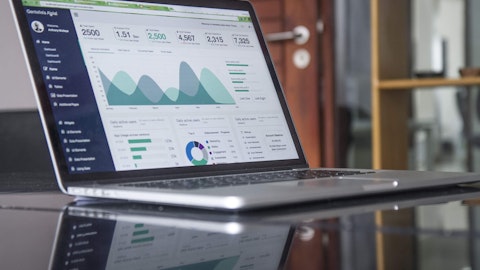Paul Fremont: Okay, and then last question for me. You guys gave a gross margin per megawatt hour. Is there any guidance that you can provide on a gross margin per megawatt hour basis for peg power in 2023?
Ralph LaRossa: No, I mean, I think we’ve given you the overall hedge price across ’23 and characterizes 95% to 100% fair. So I think you’ll see that as we go through the quarters.
Paul Fremont: Okay. Thank you very much.
Ralph LaRossa: Thanks Paul.
Dan Cregg: Thanks Paul.
Operator: Our next question comes —
Carlotta Chan: We have time for one more question.
Operator: Okay. No problem. And our last question comes from the line of Sophie Karp with KeyBanc Capital Markets. Please proceed with your question.
Sophie Karp: Hi. Good morning. Thank you for putting me in here. Most of my questions have been answered actually. But maybe I can just ask you about the gas utility future in New Jersey. Had given the — in the comments that are coming out from the governor and just overall focus on electrification. How do you think about kind of the setup that you have going into this? What could be a multi decade trend? Specifically, are your electric and gas territories fully overlapped in terms of customers? Like where whatever you might lose as a gas business you will gain as an electric business or are they kind of cannibalized by other utilities? How should we think about that?
Ralph LaRossa: Yes. So it’s a mixed bag for us that we have some gas only territory, some electric only territory but our customers, bulk are combined. So I don’t want to say it’s a win-win, but it is a win-win for us to great expense. And because we’re focused on all of our gas investments being in replacement activities, not new activities, but replacement activities that are going to help reduce methane, we’re thinking those investments will make a ton of sense and will continue. So I actually think about this more from the standpoint of the speed in which we electrify and the cost to consumers and how we think about that. So we’ll continue to drive that point. We’ll be able to offset a bunch of it with the Energy Efficiency work that we’ve started.
And we’ll continue. We don’t talk about our energy efficiency programs, half as much as we did in the past. But that’s because it’s just become such a core part of our business like any other anything else we do. So I’m thinking that the energy efficiency will help create more headroom on the bill. As we do that for customers the electrification can move faster in those areas, but for some of our urban centers, the challenges will remain and we’ll have to really work closely with policymakers not to have sticker shock for everyone in the state.
Sophie Karp: Terrific, thanks so much. That’s all from me.
Ralph LaRossa: Thanks Sophie.
Carlotta Chan: Thank you.
Operator: And that is all the time we have for questions. I would like to turn the floor back over to Mr. LaRossa for closing comments.
Ralph LaRossa: Well, thank you. And I just three things I want to hit on. One again, our thoughts and prayers to all those who were impacted by the tragic events that we had here earlier this month. The organization is still dealing with that and will continue for probably years to come. But during that time, we have always talked a lot about the transition and leadership here. And I think Ralph Izzo and a number of other people in the past, but no time, whatever either what I want to do more than now is thank the entire team and my direct reports that have been standing here with me and been able to not only deal with the tragic events, but also to execute on a plan that you heard earlier today. We’ve accomplished a lot in a short period of time. We’ll continue to do that. And we’ll continue to build your confidence and look forward to having that conversation with you on March 10 when we meet with you at the stock exchange in New York. Thanks for calling in.
Operator: And ladies and gentlemen this concludes the teleconference. You may disconnect your line at this time. Thank you for your participation.
Follow Public Service Enterprise Group Inc (NYSE:PEG)
Follow Public Service Enterprise Group Inc (NYSE:PEG)
Receive real-time insider trading and news alerts





